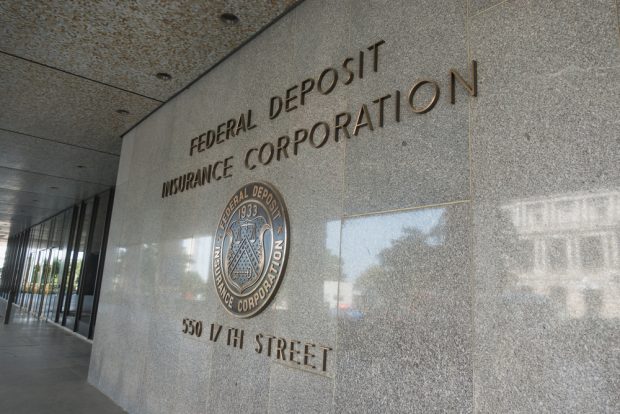 Source: Shutterstock.
Source: Shutterstock.
A Delaware federal judge denied Del-One Federal Credit Union's motion to dismiss a member's class action lawsuit, noting in her opinion that its overdraft program may have violated a federal regulation and may be fraudulent.
The $680 million Del-One in Dover, which serves more than 75,000 members, disagreed with the lawsuit's claims.
Recommended For You
"Del-One intends to continue our defense against these contentions and feel that we will ultimately be successful in establishing plaintiff's claims are without any merit," the credit union's legal counsel, Lori Savage, said.
In the opening statement of her July memorandum opinion, federal judge Stephanos Bibas noted that Del-One used the federal government's template that included the most common-sense definition of over drafting a bank account.
"But Del-One understands over drafting more broadly than that, so the template's definition did not describe its policy clearly," Judge Bibas wrote. "Because Del-One did not adapt the template accordingly, it may have violated a federal regulation (Regulation E) and committed fraud. So I let the claims against it proceed."
The plaintiff is Joanne Miller, who joined Del-One in 2016 and opted into the credit union's overdraft program. In June 2021, she was charged an overdraft fee on a debit card/ATM transaction. Miller also claimed in her lawsuit that she was charged on "multiple occasions" with additional overdraft fees.
All of those charges were assessed based on Miller's "available balance" even though Del-One's opt-in disclosure agreement explains that an overdraft only occurs "when you do not have enough money in the account to cover the transaction," which her lawsuit noted is a description of the "actual" balance of the account.
Del-One tracks the "actual" or "ledger" balance and the "available" balance for every member account. The actual balance only factors in the settled transactions in calculating the account balance. However, Del-One assesses overdraft fees based on the member's available balance.
Del-One determines the available balance on a member's future payments such as a monthly mortgage payment or water bill, and then subtracts those upcoming payments to calculate the available balance. If a member spends more than what is calculated as the available balance, the Del-One member is charged an overdraft fee, even when the member deposits the money to cover those future payments, according to court documents.
Del-One argued in its court filings that like most banks and credit unions, Del-One uses the available balance to mitigate the risk that some members may fail to track debit card spending. If the credit union relied on the actual or ledger balance to determine overdraft fees, Del-One pointed out that it would be on the hook for the member's overspending habits.
Nevertheless, Miller's lawsuit claimed that Del-One violates Regulation E because its opt-in notice is ambiguous, and she was not aware that the credit union factored in upcoming bills when deciding whether she had enough money in her account. Regulation E requires financial institutions to clearly explain in its opt-in notice the reasons it charges overdraft fees. In addition, her lawsuit alleged the credit union violated Delaware's Consumer Fraud Act.
Although Del-One said that these claims are without merit, Judge Bibas said Miller's regulatory and fraud claims are plausible.
"Del-One's opt-in notice defines an overdraft as 'when you do not have enough money in your account to cover a transaction, but [Del-One] pay[s] it anyway.' Miller reads this definition to mean that Del-One uses the actual balance and money in the account to calculate whether an overdraft has occurred without factoring in upcoming bills," Judge Bibas wrote. "Understandably so. Ordinary consumers would likely understand the phrase 'do not have enough money in your account' to refer to a literal shortfall of cash, not the possibility of one."
She noted that many courts have found similar opt-in notices that have failed to describe this type of overdraft service clearly.
Miller also claimed Del-One's ambiguous opt-in notice is a misrepresentation, which violates the state's consumer fraud laws.
Del-One argued in its court documents that Miller's fraud claim is nothing more than a dressed-up breach of contract issue – without additional deceptive conduct – because the crux of her claim is that Del-One charged her overdraft fees that were not authorized by the disclosure agreement.
"But that argument rewrites Miller's complaint; she does not argue that Del-One broke some promise to her," Judge Bibas wrote. "Instead, she says Del-One 'failed to disclose' important information about its overdraft policy. That is a classic fraud argument, not a breach-of-contract one."
© Touchpoint Markets, All Rights Reserved. Request academic re-use from www.copyright.com. All other uses, submit a request to [email protected]. For more inforrmation visit Asset & Logo Licensing.







